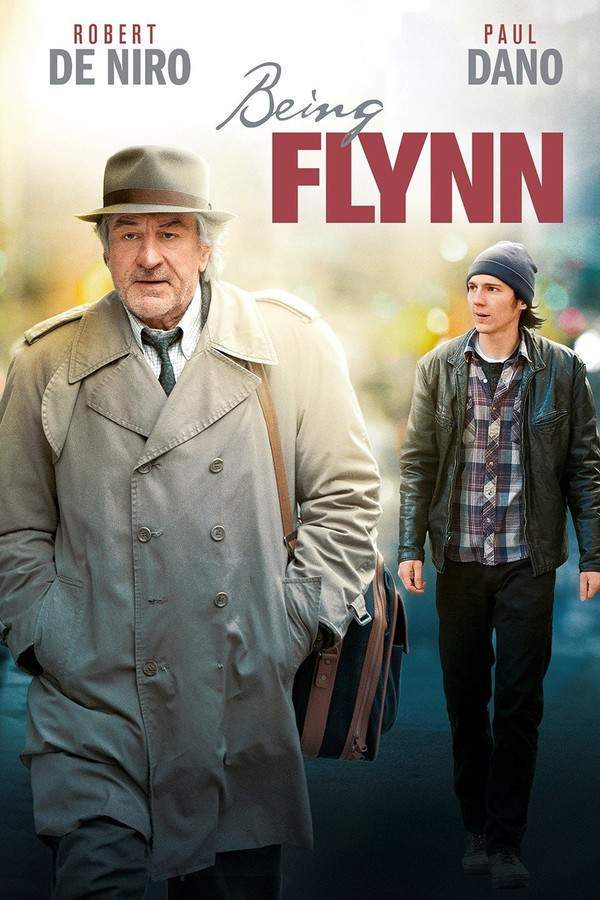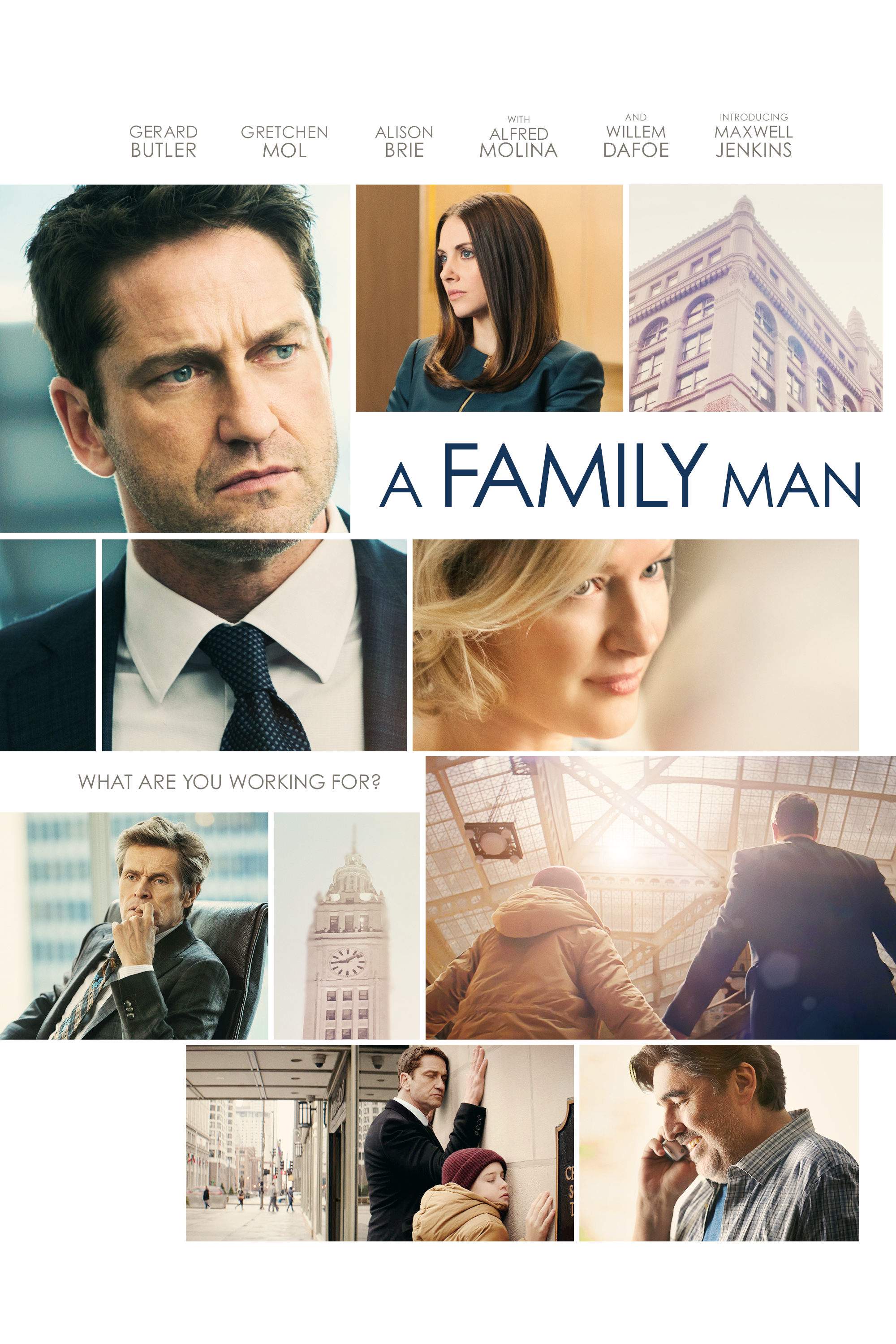
Being Flynn 2012
Directed by

Paul Weitz
Made by

Focus Features
Test your knowledge of Being Flynn with our quiz!
Being Flynn Plot Summary
Read the complete plot summary and ending explained for Being Flynn (2012). From turning points to emotional moments, uncover what really happened and why it matters.
In the gritty landscape of a homeless shelter, aspiring writer Nick Flynn faces the tumultuous emotions stemming from his fraught relationship with his estranged father, Jonathan, a self-proclaimed “master storyteller” plagued by his own demons. The shadows of their complicated past loom large, intensifying as Nick grapples with the pain of his mother’s tragic suicide—an event he carries deep guilt about.
As the tension between Nick and Jonathan mounts, Nick descends deeper into emotional turmoil, leading him to self-medicate and abuse substances. This spiral not only jeopardizes his budding relationship with Denise, his girlfriend and coworker, but also threatens to hinder his writing aspirations. Jonathan’s cantankerous disposition earns him disdain among the shelter’s residents, ultimately resulting in his expulsion from the facility.
In a desperate bid to numb the guilt associated with voting for his father’s ousting, Nick turns to crack cocaine, only to find that it intensifies his emotional suffering rather than providing relief. This harsh awakening pushes him to confront his addiction by enrolling in a rehabilitation program and reaching out to mend his relationship with Denise.
As Nick undertakes the challenging journey of self-recovery, he unexpectedly encounters Jonathan once more, this time on the streets. In a moment of reconciliation, Nick extends an invitation for his father to stay with him. The following day, during their farewells, Jonathan imparts a life-altering truth: Nick is not to blame for his mother’s suicide, and their similarities may not be as pronounced as he once thought.
Years later, Nick has blossomed into a successful teacher, poet, and devoted family man. Meanwhile, thanks to his son’s support, Jonathan has found stability in Section 8 housing. In a deeply meaningful act of closure, Nick invites his father to one of his poetry readings, introducing him to his loving wife and infant daughter. Although initially hesitant, Nick ultimately permits his father to hold their child, symbolizing a tentative yet profound step toward healing and redemption for both men.
Being Flynn Timeline
Follow the complete movie timeline of Being Flynn (2012) with every major event in chronological order. Great for understanding complex plots and story progression.
Nick's Struggles Begin
In the gritty landscape of a homeless shelter, Nick Flynn begins to navigate his aspirations as a writer while grappling with complex emotions tied to his father's absence. The chaotic environment of the shelter serves as a backdrop to his struggles, intensifying the internal conflicts he's facing.
Confronting the Past
Nick is haunted by the tragic suicide of his mother, an event that fuels his feelings of guilt and resentment. His fraught relationship with his estranged father, Jonathan, leads to intense introspection as Nick wrestles with whether he has inherited his father's demons.
The Father-Son Tension Mounts
As Nick's emotional turmoil deepens, the tension between him and Jonathan escalates. Nick's attempts to cope with his feelings through substance abuse threaten to jeopardize his budding relationship with Denise, further complicating his life.
Jonathan's Expulsion
Due to his cantankerous behavior, Jonathan faces disdain from other residents in the homeless shelter, culminating in his expulsion. This event not only marks a low point for Jonathan but also forces Nick to confront their relationship's fragility.
Numbing the Guilt
Struggling with guilt over voting for his father's ousting, Nick turns to crack cocaine in a desperate attempt to numb his overwhelming emotions. However, the drug only intensifies his pain, leading him further down the path of addiction.
Seeking Rehabilitation
Realizing the destructiveness of his addiction, Nick seeks help by enrolling in a rehabilitation program. This decision marks a pivotal moment in his life as he embarks on the challenging journey toward self-recovery.
Encountering Jonathan Again
On the streets, Nick unexpectedly encounters Jonathan, providing him an opportunity to reconnect. This chance meeting allows for a tentative exploration of their strained relationship.
A Moment of Reconciliation
Nick extends an invitation for Jonathan to stay with him, symbolizing a tentative step towards reconciliation. Their time together offers moments of reflection and shared vulnerability as they attempt to heal old wounds.
Life-Altering Truths
During their farewells, Jonathan reveals a life-altering truth to Nick: he is not to blame for his mother's suicide. This revelation sparks a deep moment of understanding between them, paving the way for healing.
Nick's Growth and Success
Years later, Nick has transformed into a successful teacher and poet, finding stability and happiness in his life. He has embraced his role as a devoted family man, demonstrating the fruits of his hard work and perseverance.
Jonathan Finds Stability
With Nick's support, Jonathan gains stability, moving into Section 8 housing. This change signifies a hopeful turn in his life, showcasing the positive impact of their rekindled relationship.
The Poetry Reading Invitation
In an emotional act of closure, Nick invites Jonathan to one of his poetry readings. This moment is significant, as it reflects Nick's desire to integrate his father back into his life, despite their troubled history.
A Family Reunion
At the poetry reading, Nick introduces Jonathan to his loving wife and infant daughter, symbolizing a new chapter for their relationship. This introduction marks a reconciliation between the past and the present.
Allowing a Touch of Connection
Although initially hesitant, Nick ultimately allows Jonathan to hold his baby. This tender moment signifies a profound and tentative step toward healing and redemption for both men, as they confront their shared history.
Being Flynn Characters
Explore all characters from Being Flynn (2012). Get detailed profiles with their roles, arcs, and key relationships explained.
Nick Flynn
Nick is an aspiring writer grappling with his tumultuous relationship with his estranged father and the guilt stemming from his mother's suicide. His emotional struggles lead him down a dark path of addiction, but ultimately, he shows resilience by seeking recovery and trying to mend familial ties. Nick's character arc is one of introspection and growth as he learns to navigate the complexities of love and loss.
Jonathan Flynn
Jonathan, Nick's estranged father, is a self-proclaimed storyteller plagued by his own demons and a difficult past. His cantankerous nature makes him a challenging figure within the homeless shelter, reflecting his internal struggles. Despite his flaws, Jonathan's journey toward stability with his son's support highlights his potential for change and the complexity of their relationship.
Denise
Denise is Nick's girlfriend and coworker, embodying a supportive yet challenging presence in his life. As Nick battles addiction and emotional turmoil, she represents a source of love that he struggles to maintain. Her character illustrates the strain that addiction can put on relationships and the importance of forgiveness and understanding.
Being Flynn Settings
Learn where and when Being Flynn (2012) takes place. Explore the film’s settings, era, and how they shape the narrative.
Time period
The film does not specify an exact time period, but the themes and social issues it addresses, such as homelessness and addiction, are relevant to contemporary society. The characters navigate their struggles in a modern urban setting that reflects ongoing societal challenges.
Location
Homeless Shelter, Streets
The movie takes place primarily in a homeless shelter, a gritty and often harsh environment where marginalized individuals seek refuge. It's a place filled with raw emotions and complex dynamics between residents, highlighting the struggle for dignity and survival. The streets also serve as a backdrop for the evolving relationship between father and son, symbolizing both their tumultuous past and the path toward reconciliation.
Being Flynn Themes
Discover the main themes in Being Flynn (2012). Analyze the deeper meanings, emotional layers, and social commentary behind the film.
🖊️
Writing & Expression
Writing serves as a crucial outlet for Nick, allowing him to process his emotions and experiences. The art of storytelling is central to both Nick and Jonathan, as it reveals their inner conflicts and familial ties. Ultimately, their journeys highlight the power of expression in overcoming personal struggles.
💔
Family Dynamics
The relationship between Nick and Jonathan is marked by deep-seated issues, including guilt, regret, and a longing for connection. Their complicated past significantly impacts their present, emphasizing the challenges of familial bonds. As they navigate their emotions, the film poignantly addresses forgiveness and healing.
🚀
Redemption
Both Nick and Jonathan seek redemption through their struggles with addiction and personal demons. Nick's journey towards recovery and forgiveness speaks to the idea that change is possible, even in the face of deep emotional pain. Their eventual reconciliation showcases the potential for growth and healing beyond past mistakes.

Coming soon on iOS and Android
The Plot Explained Mobile App
From blockbusters to hidden gems — dive into movie stories anytime, anywhere. Save your favorites, discover plots faster, and never miss a twist again.
Sign up to be the first to know when we launch. Your email stays private — always.
Being Flynn Spoiler-Free Summary
Discover the spoiler-free summary of Being Flynn (2012). Get a concise overview without any spoilers.
In the stark corridors of a city’s homeless shelter, aspiring writer Nick Flynn strives to carve out a voice amid the clamor of forgotten lives. The environment is gritty yet oddly intimate, a place where stories simmer beneath the surface of everyday survival. Within this muted landscape, the rhythm of daily routine is punctuated by the unexpected return of a man long absent—Jonathan, Nick’s father, who arrives after nearly two decades of silence, bringing with him the weight of untold histories and lingering questions.
Nick carries the ache of a mother whose loss still shadows his thoughts, a grief that subtly informs his creative yearning. The reappearance of Jonathan forces him to confront a tangled past: a childhood marked by distance, a legacy of storytelling that feels both inherited and burdensome, and an identity that has been shaped in the gaps left by absence. The film’s tone is contemplative, blending raw realism with moments of quiet introspection, inviting the audience to feel the delicate balance between hope and despair that defines life on the margins.
Beyond the shelter’s walls, the city itself becomes a character, its cold concrete and fleeting lights mirroring the internal turmoil of those who dwell within. Relationships flicker in and out—friendships forged in shared hardship, a budding romance with a coworker that offers a glimpse of stability, and the ever-present specter of addiction that looms over Nick’s attempts at self‑discovery. The narrative promises a journey through emotional terrain as the two men navigate the uneasy space between reconciliation and remembrance, all while the world around them hums with the unspoken stories waiting to be told.
Can’t find your movie? Request a summary here.
Movies with Similar Twists and Themes
Uncover films that echo the narrative beats, emotional arcs, or dramatic twists of the one you're exploring. These recommendations are handpicked based on story depth, thematic resonance, and spoiler-worthy moments — perfect for fans who crave more of the same intrigue.
Featured on this page

What's After the Movie?
Not sure whether to stay after the credits? Find out!
Explore Our Movie Platform
New Movie Releases (2025)
Famous Movie Actors
Top Film Production Studios
Movie Plot Summaries & Endings
Major Movie Awards & Winners
Best Concert Films & Music Documentaries
Movie Collections and Curated Lists
© 2025 What's After the Movie. All rights reserved.










